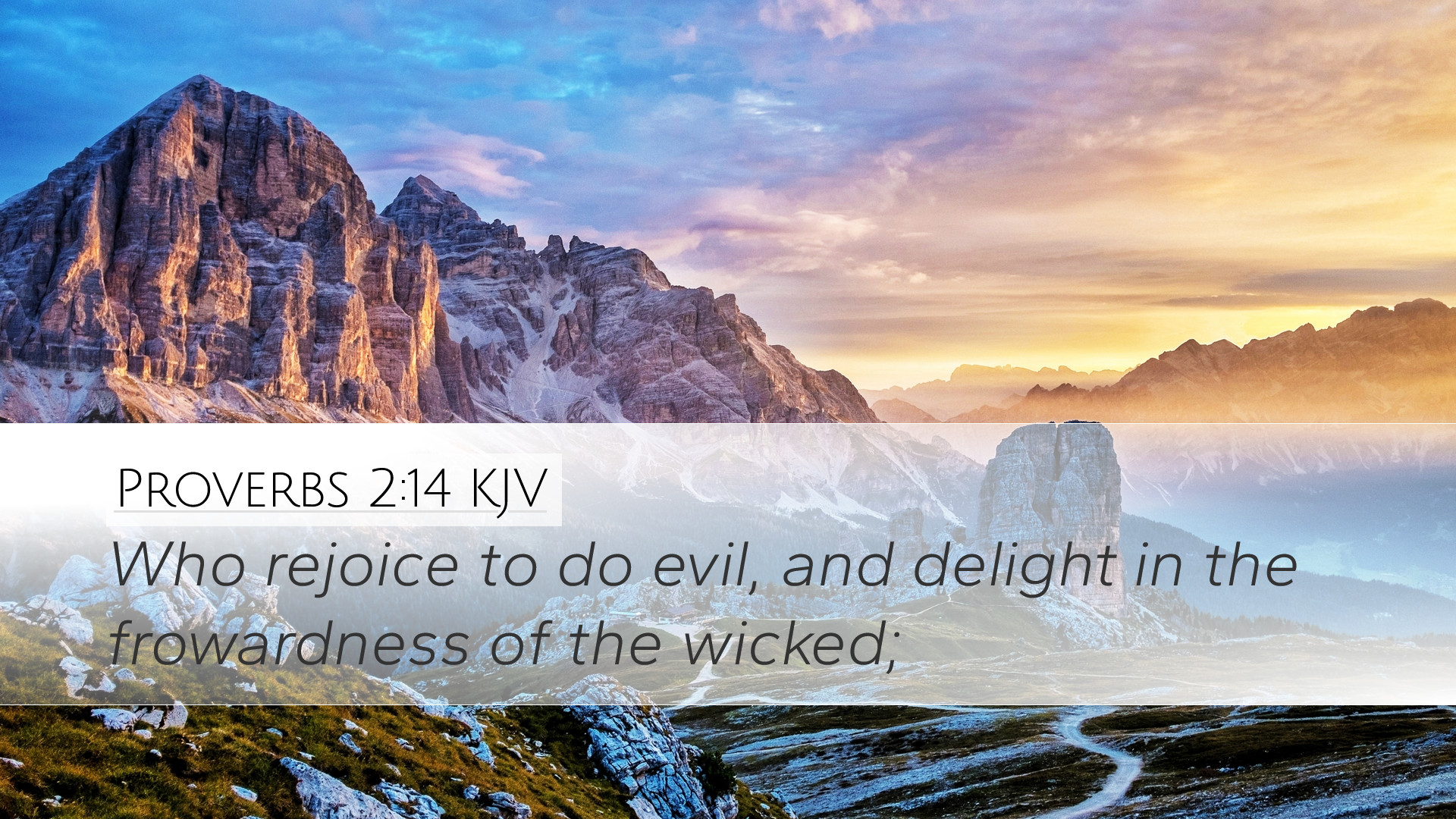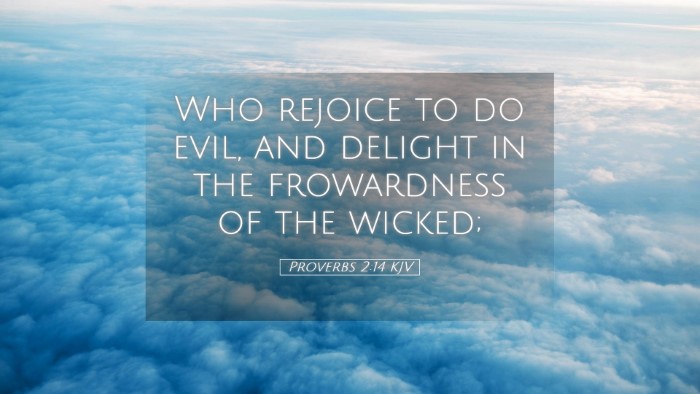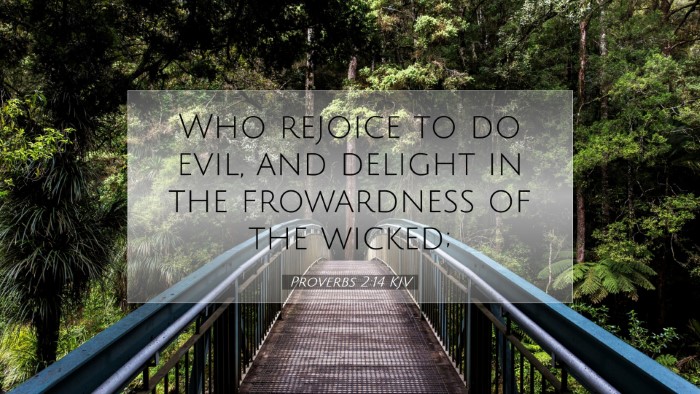Commentary on Proverbs 2:14
Verse: "Who rejoice to do evil, and delight in the frowardness of the wicked." - Proverbs 2:14
Introduction
The Book of Proverbs is fundamentally a treasury of wisdom literature, presenting practical insights for living a righteous and wise life. Proverbs 2:14 speaks to the nature of human inclination towards evil and the distinct joy some take in wickedness. This commentary synthesizes insights from public domain sources to explore the implications of this verse for both personal conduct and societal observations.
Exegesis of the Text
In this verse, the term "rejoice" indicates a profound and celebratory acknowledgement of wrongdoing. According to Matthew Henry, the psalmist here targets the wicked who not only commit evil acts but also find pleasure in them. This reflects a state of moral corruption where delight in malevolence becomes a standard, suggesting a deep inversion of virtue.
Albert Barnes further notes that those who "delight in frowardness" exhibit a sickening companionship with unrighteousness. The term "frowardness" captures a disposition of perverse behavior that is characterized by deceit and a rebellious spirit against divine order. Barnes emphasizes that such hearts are inherently misaligned with godly wisdom and truth.
Adam Clarke points out the dangers inherent in cultivating relationships with those who delight in evil. He warns that the wisdom one seeks is often defiled by such affiliations, leading to a lifestyle estranged from the principles of virtue and enlightenment. The prudent are called to recognize and distance themselves from such influences.
The Nature of Evil Joy
This passage confronts the psychological tendencies of the fallen human heart. Matthew Henry describes the delight of the wicked as a frighteningly captivating phenomenon. Those that rejoice in wrongdoing are not merely participants in evil; they are active proponents who derive pleasure from the suffering and disorder caused by their actions.
- Delight in Evil: This indicates that wickedness can be attractive, pulling individuals away from righteousness.
- Sophistry of Sin: Many rationalize their behavior, suggesting that sin can bring satisfaction and joy.
- Disconnection from Consequences: Those who rejoice in evil often lack an awareness or concern for the moral and societal consequences of their actions.
Clarke contrasts the genuine joy found in righteousness, which leads to fulfillment and peace, with the transient and hollow joy of the wicked. The former cultivates community and blessing, while the latter invariably leads to isolation and despair.
The Broader Context
Proverbs 2 presents a clear dichotomy between the paths of wisdom and folly. The preceding verses speak of the pursuit of wisdom as a precious treasure—insight and discretion as the fruits of seeking God. Thus, verse 14 serves as a sobering reminder of the alternative: a voluntary allegiance to evil and its perpetrators.
Albert Barnes explains how the wise person, keenly aware of the societal impact of character, recognizes the foolishness in delighting in evil. The assurance of wisdom's protection underscores the moral imperative to choose not only personal integrity but also communal support against evil.
This theme resonates with contemporary socio-ethical considerations, where the endorsement of behaviors contrary to godly principles persists not only in isolated actions but as norms in various cultures.
Practical Applications
For pastors, students, theologians, and scholars, the implications of Proverbs 2:14 extend into multiple aspects of both personal and communal life:
- Moral Vigilance: There remains a necessity for continuous ethical scrutiny in both personal practices and broader societal trends. The propensity for joy in wickedness calls for a diligent application of discernment in both thoughts and actions.
- Community Guidance: Churches and religious scholars must cultivate environments that actively reject delight in evil, promoting instead an ethos rooted in justice and righteousness.
- Teaching Wisdom: The task of imparting the value of wisdom over folly is imperative. This involves systematic training in recognizing the allure of evil and celebrating the joy found in righteousness.
Conclusion
Proverbs 2:14 offers a profound observation of human nature’s propensity to delight in evil. The insights provided by Matthew Henry, Albert Barnes, and Adam Clarke present a robust framework for understanding this phenomenon, urging a collective responsibility to guide members of faith communities away from such depraved joys towards the life-giving principles of divine wisdom.
The counsel of Proverbs remains timeless, calling future generations to discernment in their choices, grounded in the immutable truths of scripture. The ultimate joy derives not from the fleeting pleasures of wickedness but from the enduring satisfaction found in the heart of God.


